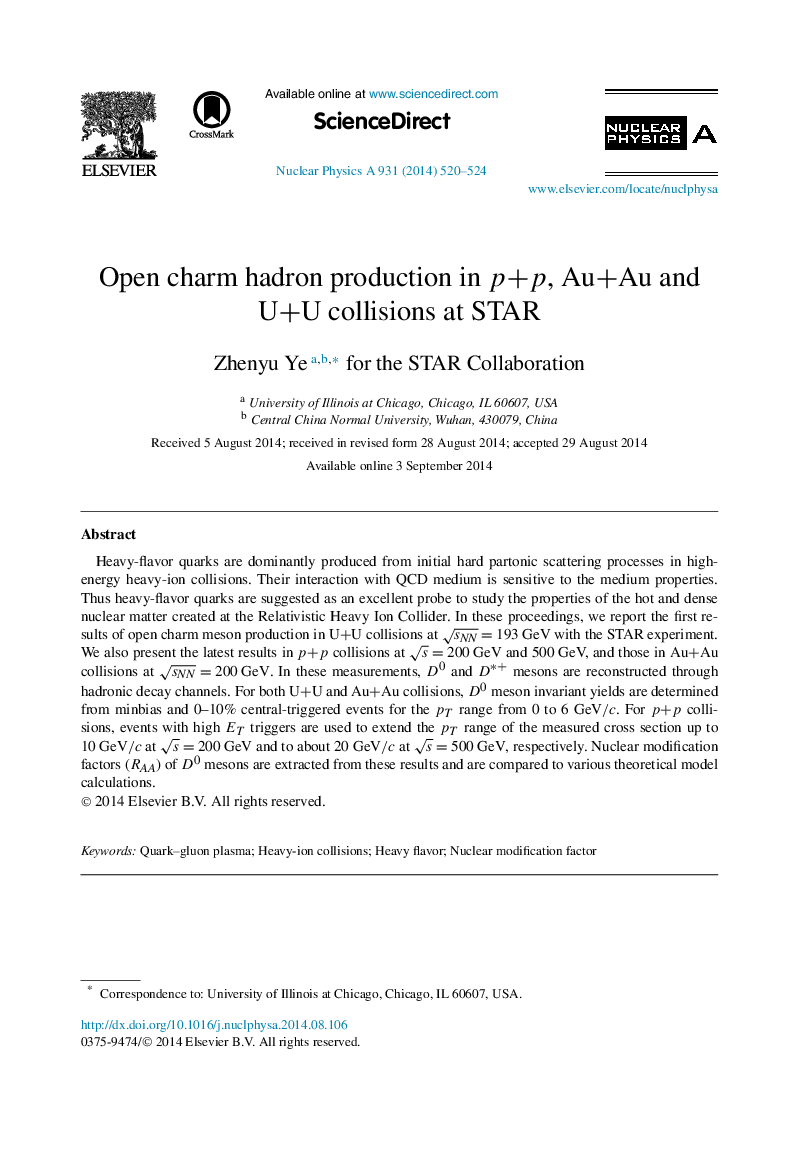| Article ID | Journal | Published Year | Pages | File Type |
|---|---|---|---|---|
| 1836494 | Nuclear Physics A | 2014 | 5 Pages |
Heavy-flavor quarks are dominantly produced from initial hard partonic scattering processes in high-energy heavy-ion collisions. Their interaction with QCD medium is sensitive to the medium properties. Thus heavy-flavor quarks are suggested as an excellent probe to study the properties of the hot and dense nuclear matter created at the Relativistic Heavy Ion Collider. In these proceedings, we report the first results of open charm meson production in U+U collisions at sNN=193 GeV with the STAR experiment. We also present the latest results in p+pp+p collisions at s=200 GeV and 500 GeV, and those in Au+Au collisions at sNN=200 GeV. In these measurements, D0D0 and D⁎+D⁎+ mesons are reconstructed through hadronic decay channels. For both U+U and Au+Au collisions, D0D0 meson invariant yields are determined from minbias and 0–10% central-triggered events for the pTpT range from 0 to 6 GeV/c . For p+pp+p collisions, events with high ETET triggers are used to extend the pTpT range of the measured cross section up to 10 GeV/c at s=200 GeV and to about 20 GeV/c at s=500 GeV, respectively. Nuclear modification factors (RAARAA) of D0D0 mesons are extracted from these results and are compared to various theoretical model calculations.
